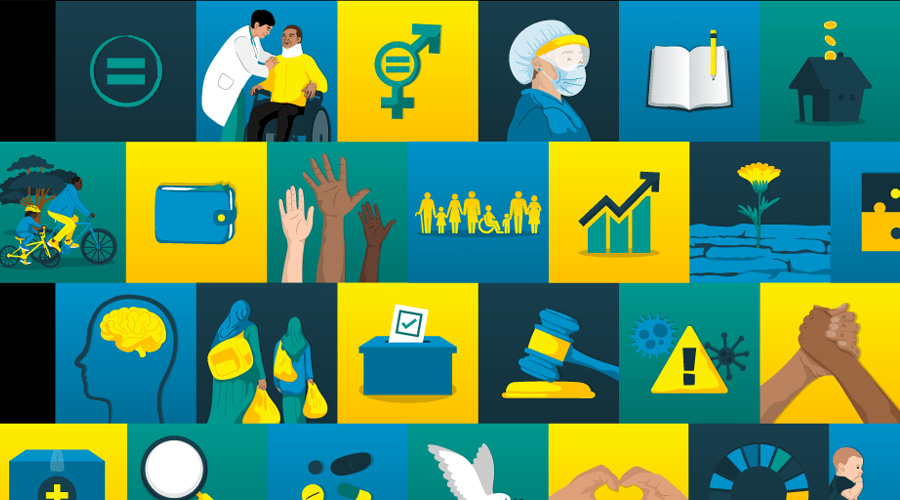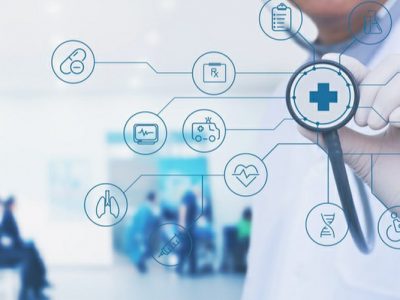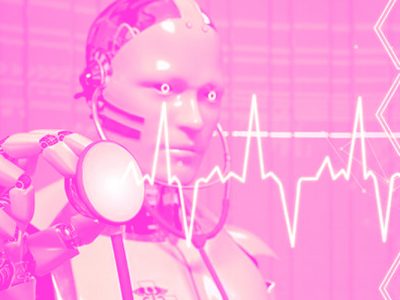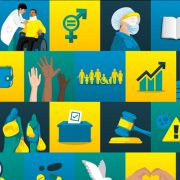
AI-based healthcare start-ups are working hard to develop diagnostics solutions.
Staying ahead of the technological curve means enhancing your competitive advantage, which is why data-driven innovation insights into the healthcare industry are critical. The AI-based healthcare start-ups are, without a doubt, progressing to the next level. In particular, the year 2019 was unquestionably a strong year for artificial intelligence expansion several AI and machine learning-based firms were launched during the year.
The healthcare business is investing in AI to automate numerous healthcare activities. The top AI-based healthcare start-ups developing breakthrough artificial intelligence diagnostic solutions for healthcare clients are listed below.
PMX:
PMX, a South Korean start-up, creates AI-powered multimodality imaging and provides automated diagnostic tools for the early detection of degenerative diseases. ChestOMX, the startup’s AI software-as-a-medical-device (SaMD), automatically analyses CT-scan findings and offers quantifiable information on lung structure and viral infiltration. ChestOMX uses infection classification and longitudinal surveillance to speed up the identification of viral and lung illnesses. Physicians can detect degenerative illnesses and deliver patient-specific treatments in less time with PMX.
NeuralMed:
For real-time medical text analysis, Brazilian firm NeuralMed employs unique AI algorithms. Natural language processing (NLP) is used by Harpy, the startup’s AI application programming interface (API), to extract information from radiology reports and produce structured medical records. Harpy may be integrated with existing hospital systems to analyze differences in medical data and generate warnings when crucial results are discovered. It also keeps track of prior patient examinations in a database. NeuralMed’s technology helps hospitals better allocate resources while also improving the accuracy and structure of diagnosis data.
Amalfi Analytics:
Amalfi Analytics, a Spanish firm, offers machine learning (ML)-based technologies for predictive healthcare administration. At the point of triage, the startup’s resource optimization tool for emergency centers, APIS and ROSE, predicts patient admission risks, resource requirements, and readmission risks. In the event of a transfer, the platform also makes it easier to find and assign beds in other hospitals. Amalfi’s products are used by hospital administrators to prevent admission issues, shorten patient wait times, and improve patient satisfaction and resource use.
Flemings:
Fleming, a Lithuanian startup, provides digital patient health monitoring with its Fleming healthcare app. The software learns health indicators and analyses individual health parameters using a medical AI library. Fleming can be integrated into smartwatches and other health apps to allow for continuous monitoring and symptom checks along with a telemedicine solution that allows for virtual doctor consultations. It provides users with immediate healthcare support from a variety of health professionals and allows physicians to remotely monitor their patients.
Artelus:
Artelus has created an AI-based intelligent solution that can detect Diabetic Retinopathy (DR) signs in under three minutes. This AI startup is now working on developing artificial intelligence solutions for detecting oncology diseases such as TB, breast cancer, and lung cancer. However, as compared to a human-based diagnosis procedure, AI-based tools in medical diagnosis improve patient outcomes.
Appto Health:
Manual procedures such as evaluating X-rays, tests, CT scans, and data entry, among others, are totally automated by the Appto AI system. As a result, Appto Health’s AI technology reduces human errors and ensures that the task is completed with more precision. Using AI-powered bots deployed on customers’ phones, this system also collects patient feedback and replies to their questions.
Roam analytics:
Roam Analytics is a leading AI firm that focuses on improving AI in the healthcare industry. The organization has built an effective AI platform to efficiently manage patients’ healthcare records and other data connected to their hospital visits and other matters. The company’s AI products use Natural Language Processing (NLP) to assist healthcare providers in properly preserving their patients’ electronic medical records and enhancing the data analysis and storage processes.
Sense.ly:
Sense.ly is one of the most promising AI startups, focusing on the development of AI-powered smart patient attendants. These intelligent assistants are developed to support chronic patients and assist clinicians in keeping close ties with their patients. Molly, Sense.ly’s AI-powered virtual patient assistant, uses natural language processing (NLP) algorithms to quickly monitor, understand, and receive feedback from patients. Furthermore, because it employs machine learning algorithms, it assists clinicians in making better treatment recommendations.
Advancells:
Advancells is a 14-year-old artificial intelligence startup. It focuses on delivering AI solutions for Regenerative Medicine therapeutic applications. It offers artificial intelligence-based therapeutic options that are both safe and life-saving.
OncoStem:
In 2011, OncoStem Diagnostics, an AI startup, was created. It aimed at developing intelligent testing to tailor treatment, notably for cancer patients, using Proteomics and Genomics-based platforms. It also attempted to prevent cancer recurrence, assisting in the development of novel drug discovery processes. “CanAssist-Breast,” the company’s AI-powered tool, can predict the likelihood of breast cancer occurrence. This enables doctors to detect malignancies at an early stage, lowering the risk of death.
The top 10 AI-based healthcare start-ups listed above are all working to modernize traditional healthcare services. These are just a few AI-based healthcare start-ups that have emerged during the last decade. Several firms are planning to take advantage of AI’s capabilities to help the fast-growing healthcare industry. They feel that with a growing population and an aging population, more innovations in the healthcare sector are required to keep their businesses successful.



















